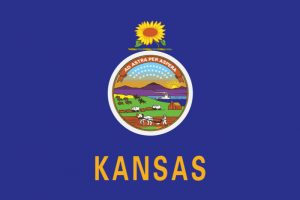 Turner v. Pleasant Acres LLC, 2022 WL 815834 (Kan. App. 2022).
Turner v. Pleasant Acres LLC, 2022 WL 815834 (Kan. App. 2022).
On the same day as the Alabama Court of Appeals issued its ruling in O’Brien v. Mobile Public Library, attempting to curtail the rights of a workers’ compensation carrier against UM/UIM benefits, the Kansas Court of Appeals was doing exactly the opposite.
For years, Kansas has not allowed a workers’ compensation carrier to subrogate or recover its lien from benefits paid by an uninsured or underinsured motorists’ (UM/UIM) carrier.[1] However, that position has been questioned and some argue it had been overruled based on recent case decisions.
In a 2001 case of first impression, an UIM’s carrier’s “substitute payment” to an injured worker as a substitute for liability coverage limits was a “recovery” under the statute entitling the workers’ compensation carrier to a lien against the amount of this recovery.[2] The ruling in Loucks, therefore, was that a workers’ compensation subrogation lien does attach to such a “substitute payment” made by the UM’s carrier in order to preserve the UIM’s carrier’s subrogation rights in response to settlement of the tort claim. The logic here was that a substitute payment was not a payment of UIM benefits but was a consequence of the remedy pursued by the injured worker against those having legal liability to the worker.[3] But it was a step in the right direction.
On March 18, 2022, the Court of Appeals decided a case which determined the subrogation rights of the Kansas Workers’ Compensation Fund from the employer’s UM carrier.[4] The Kansas Workers’ Compensation Fund (“Fund”) was created by the Kansas legislature in 1974 in order to (1) encourage employers to hire handicapped employees, and (2) provide benefits to employees where the employer fails to provide benefits or is either insolvent or unable to pay such benefits.[5] When an employer has no workers’ compensation insurance, the Fund pays the benefits to the employee. The Fund must also reimburse employers/carriers if an award is later overturned or reduced.[6] When the Fund pays benefits, it must be impleaded into a third-party action and written notice must be given to the Commissioner of Insurance.[7] Section 44-504(a) provides the Fund with a right of subrogation against responsible third-party tortfeasors, and also gives it a cause of action against an uninsured or insolvent employer for recovery of any benefits paid to the employee of an uninsured or insolvent employer.[8]
In Turner v. Pleasant Acres, LLC, the court held that the Fund did have a right of subrogation against benefits paid by the employer’s UM carrier. Kansas law treats both UM and UIM claims as hybrids—a “combination of contract and tort.”[9] The court held that the plain and unambiguous language of § 44-504 did not limit an employer’s or carrier’s subrogation rights in a worker’s compensation action to recoveries obtained in a particular type of action. In determining that the Fund had a subrogation lien against benefits paid by the employer’s UM carrier, the court appears to have reopened the door to subrogating against UM and UIM benefits. The court held that the Fund’s subrogation lien was “against the entire amount of such recovery, excluding any recovery, or portion thereof, determined … to be loss of consortium or loss of services to a spouse.”
This ruling seemingly opens the door for an identical argument on behalf of a subrogated employer or private workers’ compensation carrier. The language used in Turner seemingly states that the language of the Kansas workers’ compensation subrogation statute doesn’t limit an employer or subrogated workers’ compensation carrier to a tort claim. The argument would be that if the Fund is subrogated to benefits paid to the employee under a UM or UIM claim, so would the employer or a subrogated workers’ compensation carrier.
For questions regarding workers’ compensation subrogation in any state, please contact Lee Wickert at leewickert@mwl-law.com.
[1] Kilner v. State Farm Mut. Auto Ins. Co., 847 P.2d 1292 (Kan. 1993); Fisher v. State Farm Mut. Auto Ins. Co., 955 P.2d 622 (Kan. 1998); Knight v. Insurance Co. of North America, 647 F.2d 127 (10th Cir. 1981).
[2] Loucks v. Gallagher Woodsmall, Inc., 35 P.3d 782 (Kan. 2001).
[3] Id.
[4] Turner v. Pleasant Acres LLC, 2022 WL 815834 (Kan. App. 2022).
[5] K.S.A. § 44-532a.
[6] K.S.A. § 44-556(d)(e).
[7] K.S.A. § 44-566a(c)(1); Turner v. Pleasant Acres LLC, 2022 WL 815834 (Kan. App. 2022).
[8] K.S.A. § 44-532a(b).
[9] Stemple v. Maryland Casualty Company, 144 P.3d 1273 (Kan. 2006).






